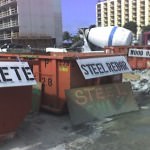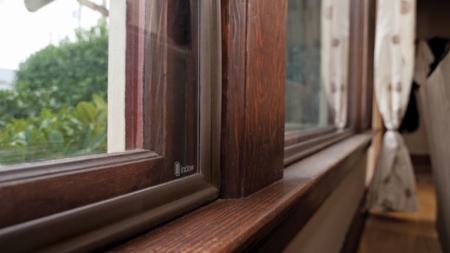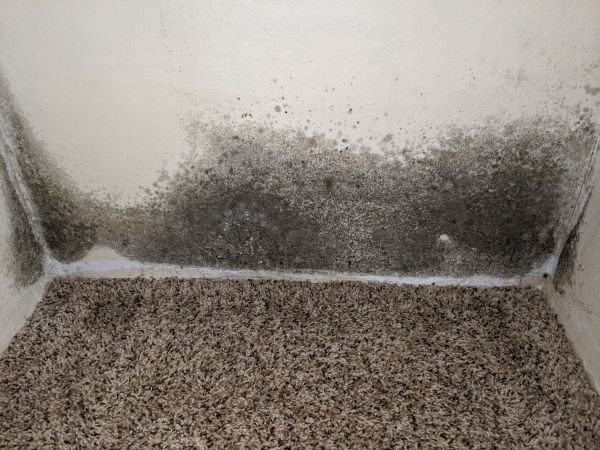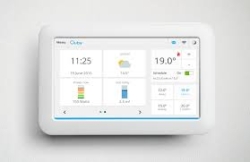Recycling construction and reusing salvaged materials not only helps to conserve natural resources, but also saves money. According to Metro (oregonmetro.gov), as much as 90 percent of construction waste could be recycled or salvaged for reuse at a lower cost compared to disposal. Garbage disposal fees in the Portland metro area are approximately $94 per ton, however recycling facility fees range from free to $35/ton when the materials are sorted out (such as concrete separated from wood). Some recyclers do take mixed loads, but may charge more.
Options to find out what hauler/recycler serves your job site: 
- Metro has an online search tool that lists over 400 recycling and reuse sites.
- Search through an online directory of recyclers and haulers.
- Call Metro at 503-234-3000.
- Metro’s Construction, Salvage, and Recycling Toolkit has listings by material category.
- PDXrelocate also has an online directory of recyclers.
Drywall can be challenging to dispose of due to environmental hazards. Some communities do not accept drywall in landfills because of this, however there are a couple of recyclers that will accept drywall. These two recyclers will take most types of gypsum wallboard and sheetrock, but not lath and plaster.
- Drywall Recycling Services, PO Box 14190, Mill Creek, WA 98082: Will take new construction drywall scrap, including greenboard, blueboard, gypsum sheathing, DensGlass, and DensArmor Plus board. Will not take drywall from demolition/tear-out nor wet drywall. Call for volume pricing and directions to locations in the Portland area and Southwest Washington. Phone: 425-471-4917; www.drywallrecyclingservices.com
- Knez Building Materials, 12301 SE Highway 212, Clackamas, OR 97015: Will take new construction drywall scrap as well as used/tear-out drywall if originally installed after 1980. Will not take wet drywall or painted, textured, or glued-on drywall. Call before dropping off. Fee: Smaller quantities at $32/per yard, $16 minimum for 1/2 yard; larger loads require preapproval before delivery. Phone: 503-655-1991
Look for reusable construction material by sorting items during and after construction. Consider deconstruction of a building when applicable rather than mechanical demolition. Metro’s Construction, Salvage, and Recycling Toolkit has listings for deconstruction companies. An example of a deconstruction company is DeConstruction Services, a non-profit associated with The ReBuilding Center. Excess building materials that will not be reused can be donated to a local non-profit organization, such as Habitat for Humanity. Some organizations have a free pick-up service for used building materials and non-profits will offer a receipt for tax purposes. Another option is an online marketplace to buy and sell used commercial construction material, such as BoneyardNW. BoneyardNW is free to use and is similar to craigslist, but geared toward the commercial construction industry. Below are non-profit organizations in the Portland Metro area that will accept used building materials:

Deconstruction (source: portlandoregon.gov)
- Building Material Resources/Building Material Recycling: Accepts used doors, windows, hardware, lumber, millwork, electrical, and plumbing fixtures. They will possibly purchase or give store credit for usable building materials. Retail outlet for used building materials. 14175 SW Galbreath Drive, Sherwood, OR 97140503-345-9805 www.materialforless.com
- DeConstruction Services of The ReBuilding Center: Provides trained, licensed, bonded, and insured crews to perform deconstruction and salvage services for residential and commercial construction projects. Free project walk-through. N. Mississippi Ave., Portland, OR 97227 503-331-9875 3625 www.deconstructionservices.org and http://www.rebuildingcenter.org/donations/
- Habitat for Humanity ReStore Building Material Recovery, Portland metro area503-535-9141 www.pdxrestore.org

Sorted recycling with large signs
Recycling tips to consider for your next project:
- Investigate options for recycling before the job begins
- Find out if the recycler will take mixed loads or requires materials to be sorted.
- Educate subcontractors about what materials will be recycled for the project.
- Place large, easily readable signs on the recycling bins to prevent garbage being thrown in.
- If multiple material types are going to be recycled and need to be sorted, label the bins with the material type.
- Make sure recycling loads are free of garbage, food, liquids, and hazardous material.
- Contact the recycler/hauler to coordinate pickup or delivery.




